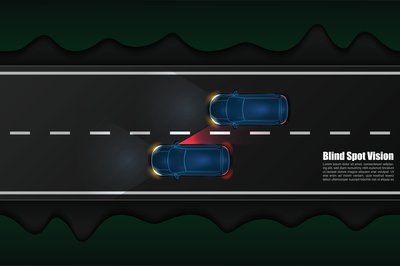There is a lot to consider when you’re planning to buy a car. In this article, we’re going to look at the different financial options to pay for your next car. Hopefully, we can make the decision a little easier for you.
TL;DR
- Paying cash for a car means no monthly payments and no interest, but it requires a significant upfront amount.
- Car financing allows you to spread the cost over time, but you will pay interest and possibly other fees.
- Evaluating your financial situation, including your budget and credit score, is crucial in making the right decision.
- Consider the total cost of ownership, including interest rates, fees, and depreciation, when comparing cash vs. financing.
- Consulting with financial advisors can provide personalised insights to help you choose the best payment method for your circumstances.
Understanding Cash Payments
Benefits of Paying Cash
Paying cash for a car is one of the simplest ways to make a purchase. You pay the exact sum agreed, and once you've bought your car, you don't have to worry about keeping up with monthly payments or paying interest on a loan. This method can save you money in the long run and offers peace of mind knowing that the car is fully paid off.
Drawbacks of Paying Cash
While paying cash can be straightforward, it isn't always feasible for everyone. Not everyone has the savings to cover the entire purchase price upfront. Additionally, using a large sum of money to buy a car might deplete your savings, leaving you with less financial flexibility for other needs or emergencies.
When Cash Payments Make Sense
Paying cash for a car makes sense if you have sufficient savings and want to avoid the hassle of monthly payments and interest. It is also a good option if you prefer to own your car outright from the start. However, it's essential to consider your overall financial situation and ensure that using your savings won't negatively impact your financial stability.
Paying cash for a car can be a straightforward process that saves you money. Here's how to buy a car with cash and what you should consider when you do.
Exploring Car Financing Options
When it comes to buying a car, financing is a popular choice for many. Understanding the different types of car loans and their respective pros and cons can help you make an informed decision.
Types of Car Loans
There are several car finance options available to buyers:
- Bank Loans: Traditional loans offered by banks with fixed or variable interest rates.
- Credit Union Loans: Often come with lower interest rates and more flexible terms.
- Dealership Financing: Convenient but may come with higher interest rates.
- Home Equity Loans: Leveraging the equity of your home to fund your vehicle purchase.
Pros of Financing a Car
Financing a car can offer several benefits:
- Immediate Ownership: Drive the car off the lot without paying the full price upfront.
- Build Credit: Regular, on-time payments can improve your credit score.
- Flexible Terms: Choose from various loan terms to fit your budget.
Cons of Financing a Car
However, there are also drawbacks to consider:
- Interest Costs: You will pay more over time due to interest.
- Depreciation: The car's value decreases faster than the loan balance.
- Financial Commitment: Long-term financial obligation that can strain your budget.
It's crucial to weigh these pros and cons carefully to determine if financing aligns with your financial situation and goals.
Evaluating Your Financial Situation
Assessing Your Budget
When buying a car, it's important to look at the whole financial equation, because the purchase price does not represent the entire cost. Assess your financial resources, considering both upfront car costs and ongoing expenses like weekly payments. It's time to get your calculator out and see where you stand financially.
Considering Opportunity Costs
Everything is different and finding what works best for you might not be what works for everyone else. Before committing to finance options, it’s a good idea to contact your financial advisor or accountant to weigh your options. It’s also very important to note the relevant economic situation regarding interest rates, including the benefits of keeping the cash in the bank.
Impact on Credit Score
Your credit history and score play a pivotal role in securing a loan, impacting interest rates and terms. Evaluate your short-term and long-term financial objectives and how a car purchase fits into your overall plan. Weigh your vehicle preferences, ownership aspirations, and comfort levels with debt and risk.
Comparing Long-Term Costs
Total Cost of Ownership
When evaluating the total cost of ownership, it's crucial to consider not just the purchase price but also ongoing expenses such as maintenance, insurance, and fuel. Financing a car can potentially offer cost savings over time, especially when considering the aspect of vehicle depreciation. Choosing to finance can mitigate the immediate financial impact of a car's depreciation, as the cost is spread over the loan period.
Interest Rates and Fees
Interest rates and fees are significant factors in the long-term cost of financing a car. While integrating the car loan into your mortgage might appear financially prudent on the surface, in the long run, the cumulative amount you shell out could be considerably more substantial. The sheer interest accumulated over the years could potentially fund an entirely new vehicle purchase!
Depreciation Considerations
Depreciation is an inevitable aspect of car ownership. Financing can align the vehicle's cost with its use and value over time, rather than absorbing the full depreciation hit upfront with a cash purchase. However, it's essential to delve deeper into this proposition. A standard home loan usually spans over two decades or more. In such a scenario, you'd be incrementally paying for your vehicle across this lengthy timeframe, accruing interest even after the car might have been sold or replaced!
Before jumping the gun, it's pivotal to weigh the short-term conveniences against the long-term financial implications.
Making the Right Choice for You
When deciding whether to pay cash or finance your new car, it's essential to consider your personal financial goals. This decision isn't just about the immediate purchase but also how it aligns with your long-term plans and financial health.
Personal Financial Goals
Evaluate what you aim to achieve financially in the next few years. Are you looking to minimise debt, or are you comfortable with manageable monthly payments? Your goals will significantly influence whether paying cash or financing is the better option.
Market Conditions
The current economic situation, including interest rates, can impact your decision. For instance, low-interest rates might make financing more attractive, while high rates could make paying cash more appealing. It's crucial to stay informed about the market conditions to make a well-informed choice.
Consulting Financial Advisors
Before committing to a decision, it's wise to consult with a financial advisor or accountant. They can provide personalised advice based on your unique financial situation and help you weigh the pros and cons of each option. This step ensures that you make a choice that aligns with your overall financial strategy.
Everything is different and finding what works best for you might not be what works for everyone else. Before committing to finance options, it’s a good idea to contact your financial advisor or accountant to weigh your options.
Practical Tips for Car Buyers
Researching Loan Offers
Work smarter, not harder and do some preliminary research before you visit the dealership. You should have an idea of what vehicle you want and arm yourself with the right questions to gather all the information you need – this is a big decision after all! This extra preparation can help you score the car you want for the right price.
Negotiating with Dealers
Research Thoroughly: Compare different car models, prices, features, reviews, ratings, and testimonials. Seek reputable sellers and dealerships offering favorable terms and services. Explore online resources like Ausloans for expert guidance on car buying.
Planning for Future Expenses
- Budget: Assess your financial resources, considering both upfront car costs and ongoing expenses like weekly payments.
- Credit Standing: Your credit history and score play a pivotal role in securing a loan, impacting interest rates and terms.
- Financial Goals: Evaluate your short-term and long-term financial objectives and how a car purchase fits into your overall plan.
- Preferences: Weigh your vehicle preferences, ownership aspirations, and comfort levels with debt and risk.
Whatever option you choose, it’s important to consider how this potential purchase might impact your current financial situation. We encourage you to think critically about your budget, income and savings so you’re best prepared when reality sets in and you need to pay for your new car.
Are you in the market for a used car? Make sure you're making a wise investment by getting a comprehensive car history report from Carify. Our reports include everything from finance checks to stolen vehicle checks, ensuring you have all the information you need before making a purchase. Don't take any chances—visit our website today and get your Carify report!
Conclusion
In conclusion, deciding between paying cash and financing for your next car is a significant financial decision that requires careful consideration of your current financial situation and future goals. Both options have their own set of advantages and disadvantages. Paying cash can save you from interest payments and provide full ownership immediately, while financing can offer flexibility and the opportunity to invest your cash elsewhere. Ultimately, the best choice depends on your personal circumstances and financial strategy. We hope this article has provided you with valuable insights to make an informed decision. If you have any further questions, feel free to reach out for more personalised advice.
Frequently Asked Questions
What are the benefits of paying cash for a car?
Paying cash for a car can save you money on interest and finance charges, give you full ownership immediately, and simplify the buying process.
What are the drawbacks of paying cash for a car?
The main drawbacks include tying up a large amount of money in a depreciating asset and potentially missing out on investment opportunities or emergency savings.
What types of car loans are available?
Common types of car loans include secured loans, unsecured loans, dealership financing, and leasing options.
How does financing a car affect my credit score?
Financing a car can positively impact your credit score if you make timely payments, but missed payments can hurt your score. Additionally, applying for a loan can result in a hard inquiry on your credit report.
What should I consider when choosing between cash and financing?
Consider your current financial situation, future financial goals, the total cost of ownership, interest rates, and potential investment opportunities when making your decision.
Can I negotiate car prices if I choose to finance?
Yes, you can negotiate car prices whether you pay in cash or finance. It's important to research and compare offers to get the best deal.





